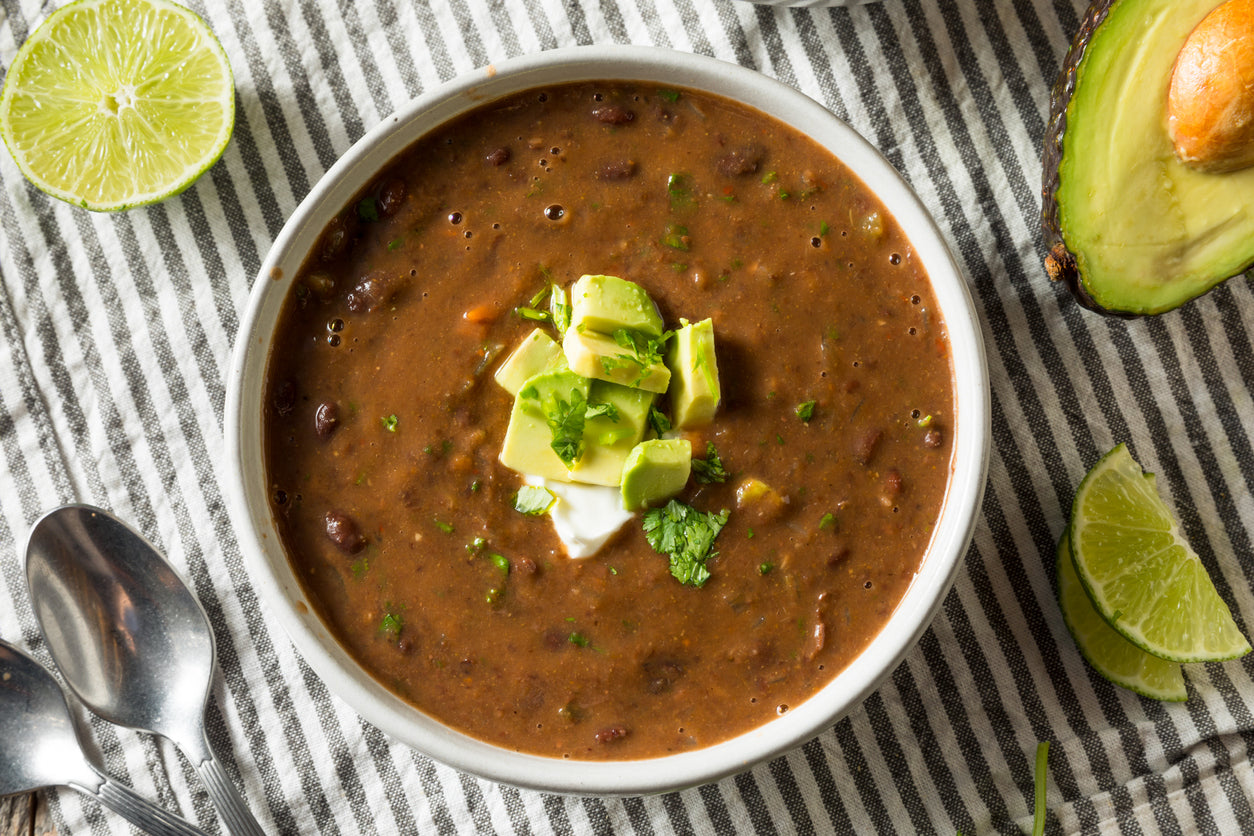Promote heart health with black beans

With a pleasant, slightly nutty taste and a satisfying consistency, black beans are increasingly being featured as a nutritious alternative to meat-based meals. Yet, black beans don’t seem to have quite the same elegant cachet of other “superfoods” such as blueberries and wild-caught salmon.
The fact is: these humble legumes are true nutritional superstars - packed with protein, fiber, antioxidants and essential micronutrients. Not only that, but black beans – also known as turtle beans – can help protect against heart disease - the number one cause of death in the United States.
When it comes to heart health, black beans mean business
One reason black beans are so beneficial to the heart is that they are high in dietary fiber, which lowers cholesterol and triglycerides (fats) in the blood. They are also rich in quercetin, a flavonoid which is getting a lot of attention in studies for its disease-fighting abilities.
Quercetin has potent antioxidant and anti-inflammatory properties, meaning it can help fight atherosclerosis, protect the linings of arteries and prevent damage from free radicals and the harmful oxidation of fats. Due to their content of potassium, calcium and magnesium – a trio of minerals needed to regulate heartbeat - black beans may also help you avoid elevated blood pressure.
And, that’s not the only healthy constituent these little beans bring to the table. They are also high in folate (vitamin B9) and vitamin B6 - which can reduce accumulations of homocysteine, an amino acid that promotes inflammation, atherosclerosis and heart disease.
Finally, black beans’ rich, dark color is a tip-off that they contain anthocyanins - antioxidant plant pigments also found in blueberries, purple grapes and blackberries. In a peer-reviewed article published in the Journal of Agricultural and Food Chemistry, scientists tested the antioxidant activity of a dozen different varieties of beans.
They found that black beans were the undisputed “high ringers” – well ahead of brown, red and yellow beans.
The surprising “hidden” benefit of beans
While not a classic diet food per se, black beans may help maintain normal weight. Because the fiber in beans provides a sense of satiety, or fullness, some weight loss experts recommend them to help reduce appetite and ward off obesity associated with heart disease.
And, scientists at the University of Copenhagen agree.
In one study, they found that meals based on legumes (like peas and black beans) were more satisfying than meals based on pork and veal - and could lead to weight loss. According to the researchers, participants eating a protein-rich meal based on beans and peas consumed 12 percent fewer calories at their next meal – when compared to those who ate a protein-rich meat-based meal instead.
Somewhat unexpectedly, the volunteers rated the sustainable, plant-based meal not only as “satisfying” as the meat-based meal - but just as “palatable.” Naturally low in fat and high in protein and fiber, cooked black beans contain a reasonable 114 calories per half-cup – a modest caloric investment for a wealth of nutritional benefits.
It’s time for black beans to take “center stage” on the menu
Black beans retain their health benefits whether they are dried or canned. If buying canned beans, seek out low sodium varieties, and rinse the beans well to remove any further sodium. Although cooking them yourself is the best option, health wise.
Dried beans must be washed well and soaked in water for at least 8 hours for best flavor and texture. In addition, soaking helps remove a starch called raffinose that can lead to bean-related, indiscreet side effects. Here's a health tip: if you don’t normally eat black beans, begin by adding them to your diet in modest amounts. And, chew them very well before swallowing for better digestion.
Versatile black beans can be added to tacos, burritos, and taco salads, or served over rice. You can jazz up cooked black beans with onion, garlic, fresh cilantro and lime juice for a classic bean dip – or create a nutritious soup by blending black beans together with onions, tomatoes and spices such as cumin.
Sources for this article include:






